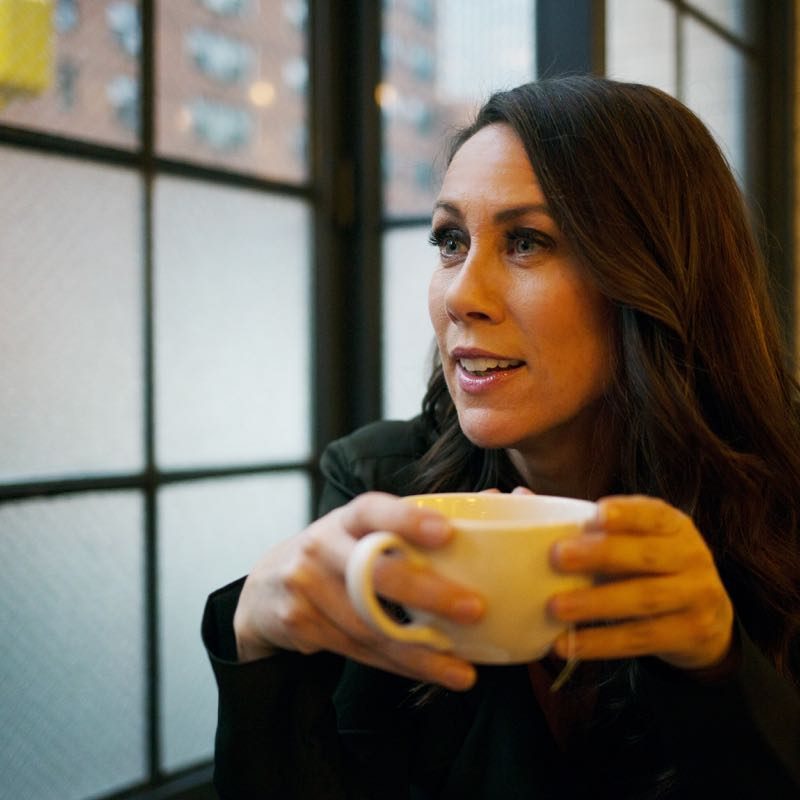An Interview with Miriam Shor
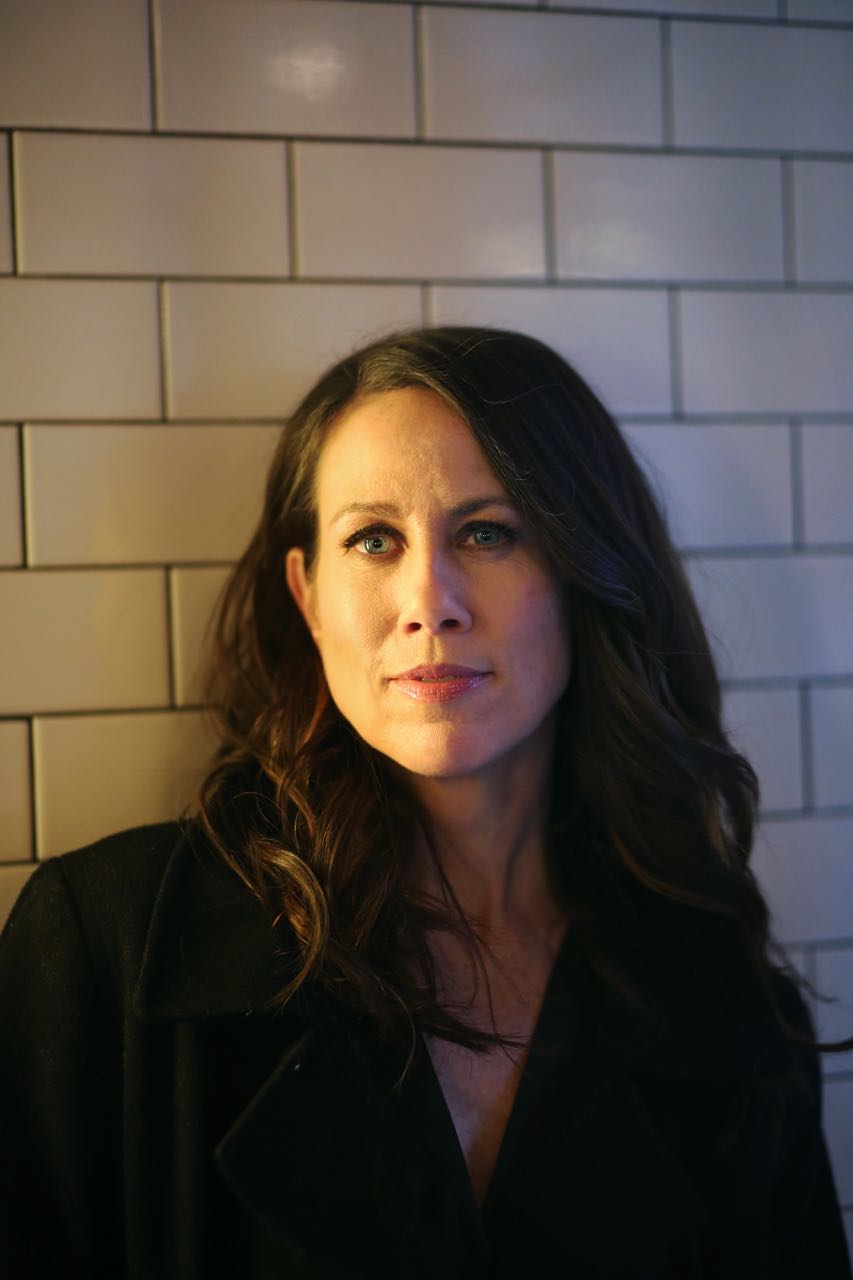
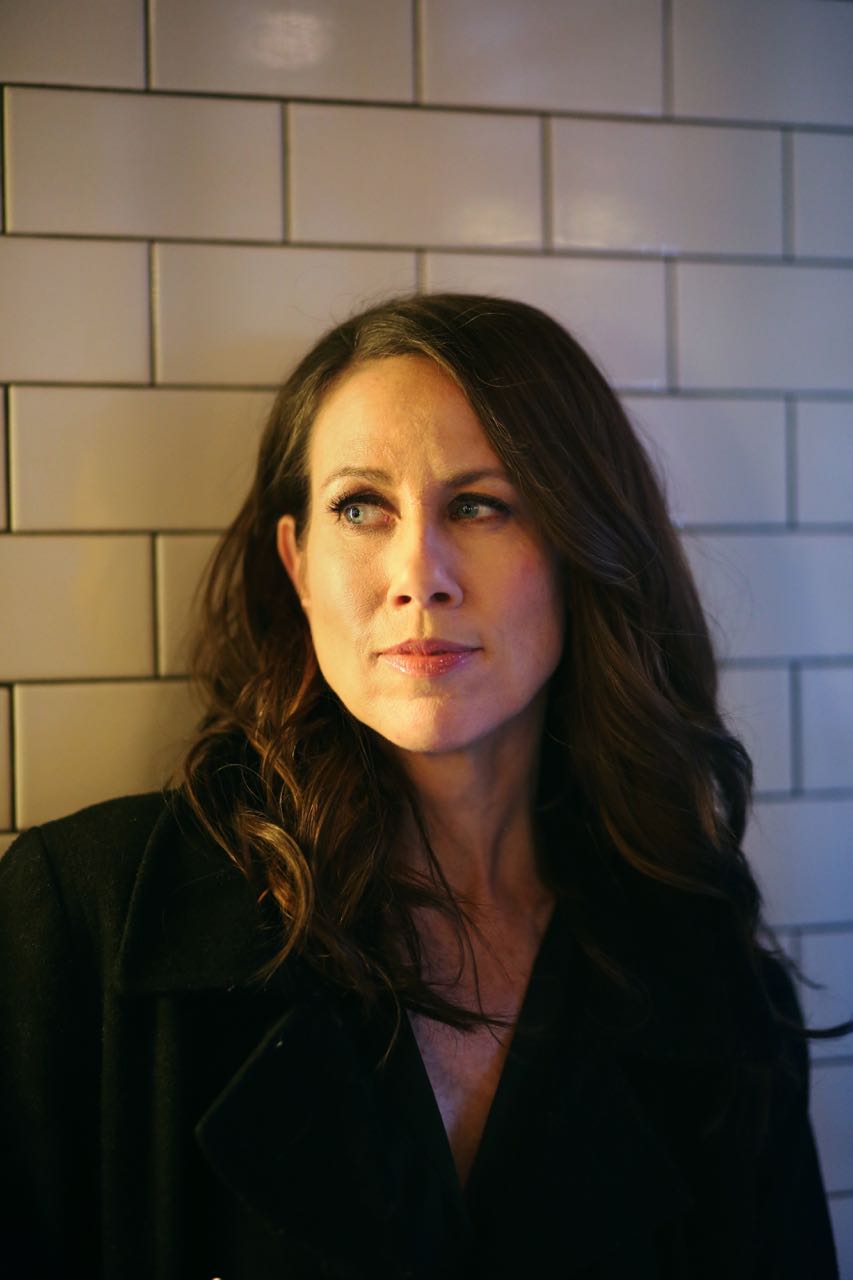
Written by Victoria Myers
Photography by Tess Mayer
November 21st, 2016
There is a torrential downpour in New York City, Donald Trump has become President-Elect, and Miriam Shor (like all of us) would rather be home in pajamas, but she is not home in pajamas. Miriam is drinking tea and discussing Sweat, the play she is currently starring in at the Public Theater. Lynn Nottage’s new play, directed by Kate Whoriskey, tells the story of a group of factory workers in Reading, Pennsylvania. Miriam, almost unrecognizable if you’re used to seeing her as Diana on Younger, plays Jessie, a lifelong factory worker with a drinking problem. The play, and its take on a group of working-class people, has taken on new resonance with the outcome of the election. We talked to Miriam about how she prepared for the role, what Sweat has to say about our country, how audience reactions have changed post-election, and more.
Let’s start with your process for preparing to play Jessie in Sweat. You got the script, and where did you start?
I haven’t done a play in a very long time. I have two little girls, and [theatre work] basically coincided with when I got pregnant. It’s difficult to take that time and to put yourself whole-heartedly into something when you’re whole-heartedly involved in your little ones, and also you’re gone in the evenings, and that’s a tough thing. When I did The Wild Party last year, which was at Encores and it was just five performances, [I found] I’m a different person. I’m older and I have two kids. I’ve changed, and so it was interesting to meet myself again as a theatre actress, which is how I always have defined myself, because that’s how I started and that’s what I loved to do. The process is a bit of a re-learning process, as well. The first week I started Sweat, I was still filming Younger, the TV show that I do. The two characters that I play—Diana Trout in Younger and Jessie in Sweat—could not be more different, which is part of what drew me to playing this role. It was difficult to get into that character at first. We did a lot of table work and talked. There’s a lot to talk about with this play. My process really was feeling my way through it, taking whatever was coming at me, and Kate Whoriskey is just my favorite director. I had never worked with her. We had been friends for a very long time and I know what an incredibly intelligent woman she is, and as a fan of her work, I knew intellectually what a great director she was, but now I know what a fantastic director she is on a much more visual level, because she helped me through this process finding this character. And Lynn has written characters that you can understand. This character I’m playing, I responded to her on such a personal level. When I was reading it, I remember being like, “I just want to be her for a while, I want to tell her story or go through what she’s going through, because I haven’t gotten to, in a long time, be that person.”
Do you start from the inside out or outside in? Especially when you have a character who’s coming from a very specific world?
What’s interesting about Jessie is that she’s drunk for a lot of the play, and that’s terrifying for me and I think for a lot of actors. It’s difficult. She’s an addict. I wanted to honor that story, that part of her, and not make it cheesy but not be afraid of it and really go for it. She’s not just like, “I’ve had a few.” She’s incapable of functioning for a lot of the play. I had to think about that, and physically think about what that does to a person. That was almost like a wardrobe that you would put on. Then I need to know where this person’s coming from before I can really understand where I’m going to go. There’s a lot of work that happens before you do the play, just trying to understand who she is and understand what her day is. She works in a factory so understanding what that does to your body. I’ve never had worse posture in my life since I’ve been playing her, because her circumstances—her physical circumstances and also emotional circumstances—weigh her down. There were a lot of physical things, but I think it all happened, for me, simultaneously. It was more thinking about it, thinking about what it would do to my body, and then that would just happen.
I know Lynn Nottage went to Reading and spent a lot of time there. Did you do research for the role?
My dad’s from Pittsburgh. I’m from Detroit. I have an understanding of that world, of factory workers. I didn’t work in a factory, but my dad did, before he ended up becoming a professor. That was something he did to make money early on. I don’t see people who do that for a living as being other than myself. I just see that as a different job than I have. I did have to try to look into what that day would be like, how you would start your morning, how you would end your day. You have to get into that mindset. Jessie’s not doing that job because she loves it, but she loves having a job. She loves having her friends who also have all worked with her. I don’t know that it was her choice necessarily. It was, but I don’t know that she viewed it as a choice. I think that’s just what you did. You worked in a factory because it was there and that was a job. It was a good job, paid well, and had benefits. So that wasn’t really an option, but she did have aspirations when she was young that she talks about, to go travel and try to see the world, and that just doesn’t happen for her.
Jessie’s backstory was surprising to me.
That was one of the things that was so moving about her to me. I had the same aspirations when I was 18, to travel. I went to India and I saw the world and I’ve lived in other parts of the world. That has changed me to my core. She had that aspiration and didn’t do it, and that has, I’m sure, changed her. She recognizes that loss when she’s asked to. She suppresses it, and it’s not until someone ask her years later, “Do you ever regret that you didn’t?” Then for that moment she realizes that she does have regrets and it overwhelms her. You can see that she’s just never really let herself think about that because it would just be too devastating. She’s an alcoholic so she is fighting something.
In New York, everyone is in therapy and talking about and analyzing their emotions. Is it a challenge to play a character who has an emotional landscape that’s not so open and aware?
She’s an alcoholic so that’s how she deals with her emotions. When she talks about this seminal moment in her life—that she doesn’t even realize was seminal—and it overwhelms her emotionally, you understand that she won’t revisit that on a daily basis. She’s not examining what has happened to her. She’s drinking to stop examining what has happened to her. I definitely feel like it’s a different way of dealing with your emotions and one that can break you. She has to get up the next day and go to work. Her husband left her. Here’s a person who’s holding on. She’s got her job and her friends and you realize through the course of the play those are the two things that go away. The bottom falls out and she falls with it.
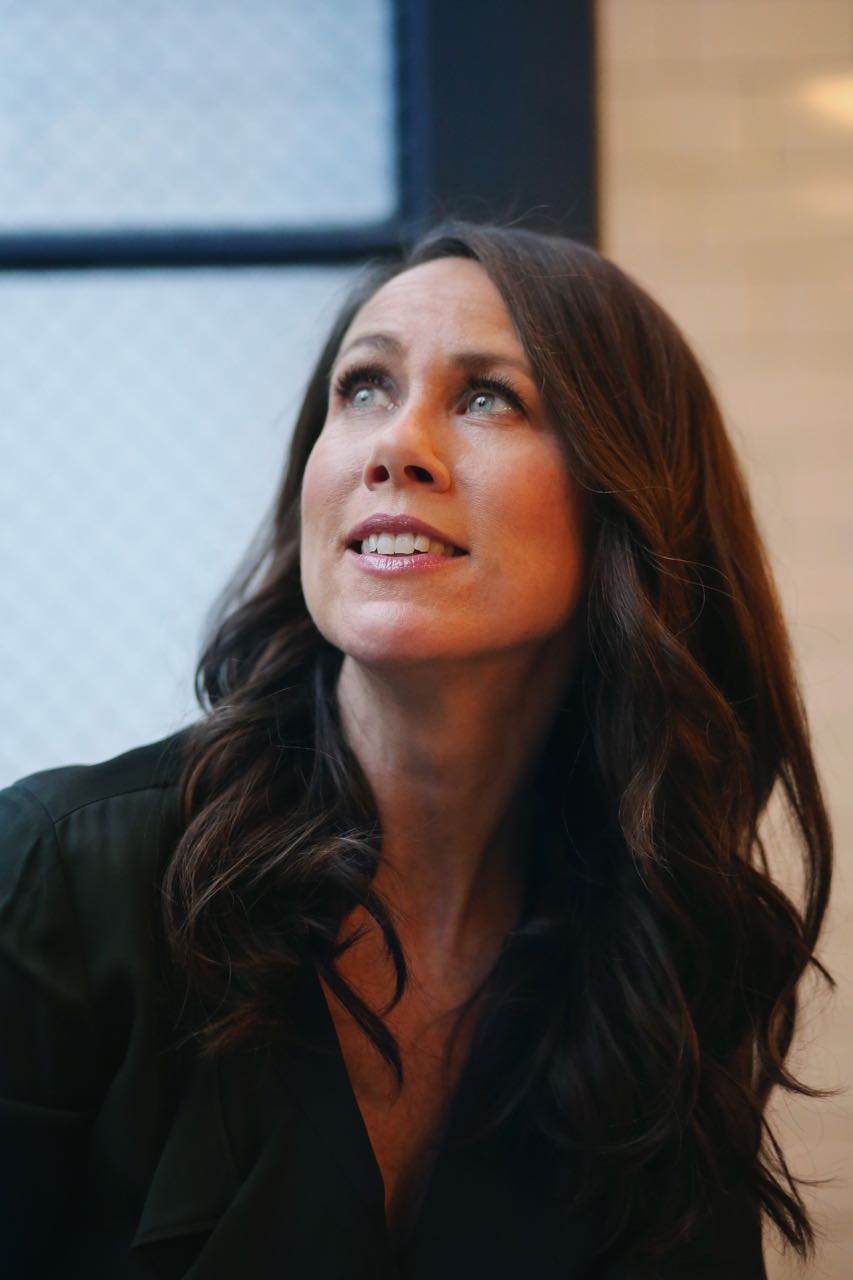
The female relationships play a large role in Sweat, which might be surprising to some people when they hear it’s a play about factory workers.
Lynn Nottage is a strong, fascinating woman. I can understand why she would believe that woman are strong and fascinating, so that’s what she would write about. Then, also, they’re genuinely a part of that community, and yesterday in The New York Times there was a story talking about a factory town, and there’s a picture of two women who work in this air conditioning factory that’s closing and moving to another country. It’s like the two characters in the play, and they are workers in this country and they are very much a part of the fabric of what allows people to make money in this country. They’ve been ignored, and that’s a part of what this play also talks about. I love that she brings that to light and I think those communities are not shocked that those women are there. I think that there are people who don’t understand that world because they haven’t stopped to examine it, and they are shocked that women are a part of that world. Women work on the floor of factories and that has been true for a long, long time.
There’s an article going around from the Harvard Business Review that takes a look at some of that, post-election.
I think what’s interesting are the friendships that you form when you work together. If you’re in a union together and you’ve been working for 24 years together and you had each other’s backs. In the play, when that friendship breaks up is one of the most devastating moments to me in so many ways because that’s the thing they all felt would always be. But when someone’s livelihood is threatened, the ugliness that can come up and that can tear apart things that mattered to them is heartbreaking. The fact that anger and racism and fear would come and break apart this bond, to me, it’s a bit like a euphemism for what happens to the country, and what happens to a community.
The play also has female characters behaving badly, and saying things that we don’t usually hear women saying on stage.
Lynn made them three-dimensional characters, but didn’t make them different than a person because they’re women. Sometimes—certainly in television, and often in theatre too—you see someone’s writing for a woman and the woman is either a devil or an angel. We all live in between that. They’re not immune to the same fears as anybody, the same downfalls as anybody, the same prejudices or bigotry as anybody. No character is faultless in this play. Everybody has some culpability in the coming apart of the fabric of this community. Racism rears its hideous head and breaks apart their friendship, and Cynthia, who’s the black woman of this trio of friends, works for management and locks her friends out of their factory. Lynn makes it very clear what is driving these women. I hope you can’t decide they’re all good or all bad. You really have to examine why. I feel like post-election this play forces you to examine why in a way that I think is a good thing and should have been done before.
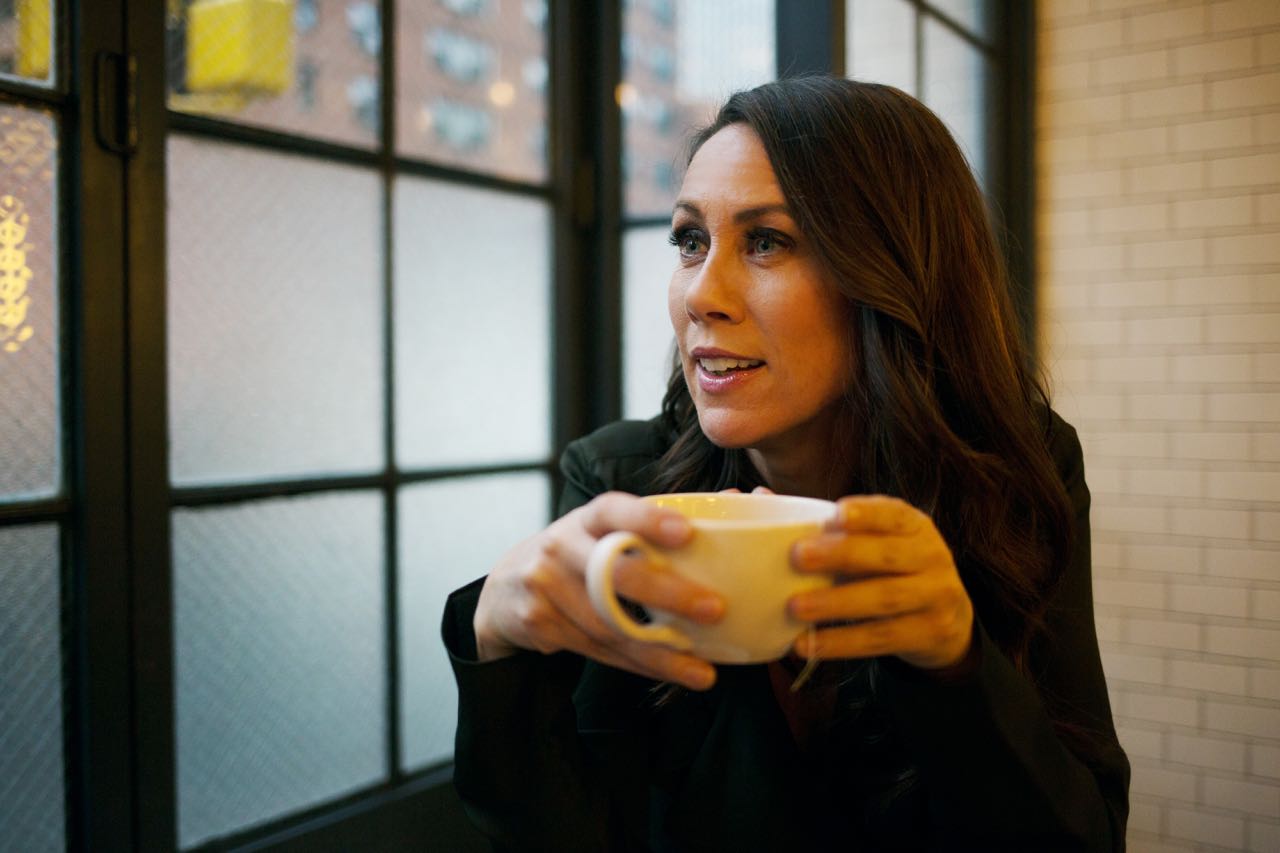
Have you noticed a change in audience reactions since the election?
Yeah. This play had a lot to say before the election, and post-election, I feel like people want to try to understand why this country elected Donald Trump and didn’t elect Hillary Clinton. The people like myself, who voted for Hillary, I think a lot of us are like, “What happened?” I also think there are people who did vote for Trump who want to know why we feel so differently from one another. I think there are people on both sides who don’t care to know because they’re just angry. Anger comes from pain and pain is blinding for a lot of people. That’s kind of what this play is about too. Those people are in pain, people are going through some serious shit and it’s blinding them to a lot of things. It’s also causing violence, it’s causing anger. It’s causing things that should hold up, and that as humans we should value, to go fall by the wayside. Anyway, I remember on Wednesday the audience was just shell-shocked.
That’s not surprising.
It’s just a lot of fear and I think people are like, “Why did Pennsylvania vote for Donald Trump?” There’s a lot of people who wonder that, and I think that this play has a lot to say about that. One of the things I hope this play does is to say, “Well, these are still people who are voting. It’s important to understand why they feel the way they feel.” That can’t be dismissed. The play takes place in 2000. This was 16 years ago, shit was happening, and I would say it goes back to way before that too. It’s easy to not pay attention to people who are different than you. It’s easy to just pay attention to your own life, and when you’re struggling, I don’t see how a single mom who is trying to make a living and work two jobs can really stop and read all the posts about proposition this, or what political person thinks that. I understand why sounds bites are how people get most of their information. Most people are working their asses off to just like make it. I feel like the audiences [at Sweat] are more open to really hearing the story and are wanting to understand. I hope that’s what it is. There’s definitely a lot of anger and pain. The audiences have been a little more vocal.
Going back to that article from the Harvard Business Review, it says that for this particular segment of the population, the reason they’re okay with a millionaire who inherited all his money but not okay with Hillary Clinton who has worked hard, is because they associate her with management, which they see in their daily lives as being the ones who are holding them back. That’s something that’s touched on in the play as well, because there’s the whole plot line about becoming management.
Oh, it’s a huge thing. When that management chooses to destroy their lives and [the character of Cynthia] is a part of it, the betrayal of that is massive and can’t be overstated. People talk about job loss and about cutting jobs like those are just words. When it’s somebody’s actual job, their life can be utterly ruined because of it. It’s personal. It’s an attack against their person, they take it personally. That pain and anger is not going away, it doesn’t go away. Factories leaving towns can destroy lives. And then you lay on top of that the anger and racism and hatred that bubbles under the surface of our country anyway because of our country’s history—and that isn’t going to go away, we just always have to deal with it. It’s so complicated, it’s such a web, and nothing can be pulled away from something else without tearing some fabric of something else. It’s so interesting talking about this play because you can’t talk about it as a play about one thing; Lynn touches on the prison system, she touches on rehabilitation, she touches on racism, she touches on the fear of management and the anger towards that. Then she touches on job loss, she touches on addiction. The truth is that all of those things are intertwined. They can’t be pulled apart because they’re all connected. I definitely think that all of those issues came up in this election. It’s fascinating to me that this play is happening right now, too, because Lynn wrote it a while ago. Donald Trump was not running for President when she was doing her research on this play. I feel lucky to be a part of a play that is looking at all of this. It’s hard to go to work and do this, but at the same time being a part of an artistic community when you’re really searching and questioning is not a bad place to be.
Does it feel like extra pressure now to perform it? Was there ever any talk of adjusting little moments in the show because people are reacting differently?
Yes, there were little moments in the show that were slightly tweaked actually, and that’s interesting because we’re going to have a different way of looking at the play now. You just can’t help it. Nothing huge, but little things. There have definitely been emotional responses that I’ve had on stage that I can’t control. That’s going to change things and that’s often the truth for all of us because we’re just people. You only have yourself to use in telling the story and whatever you’re going through is going to come be a part of whatever story you’re telling, and you don’t have a choice. Yeah, things have definitely altered.
What’s one of the little moments that’s changed?
The ending of the play. I read a review [of the play] and I don’t normally read reviews, but I was fascinated to see how people reacted to this play because it means a lot to me. I reacted so strongly to it and I believe in it so much and in Lynn and Kate, so I just wanted to see how people reacted, and I actually read reviews. It was interesting. One of the reviews mentioned that the ending was so hopeful. I think the ending is great for this play. The ending purposely leaves it up in the air. “What are we going to fucking do?” is the question I feel we’re left with at the end of the play. I was so interested in that person’s reaction to it and that they saw it as a place of hope. I was like, “Okay, that’s kind of… wow.” I feel like post-election, they tweaked something, no changes in writing, but a tweak at the ending. A tweak to that moment of silence to make it even a little more ambivalent because, right now after the election it feels more ambivalent because what the fuck are we going to do? It took a little something out of it. I’m not sure if that reviewer would have the same idea of that ending being hopeful. Which is not to say we’re despairing at the end and there is no hope. It’s just more, what happens now? Which I think we can all relate to in this moment in time. What happens now is the question, right?

